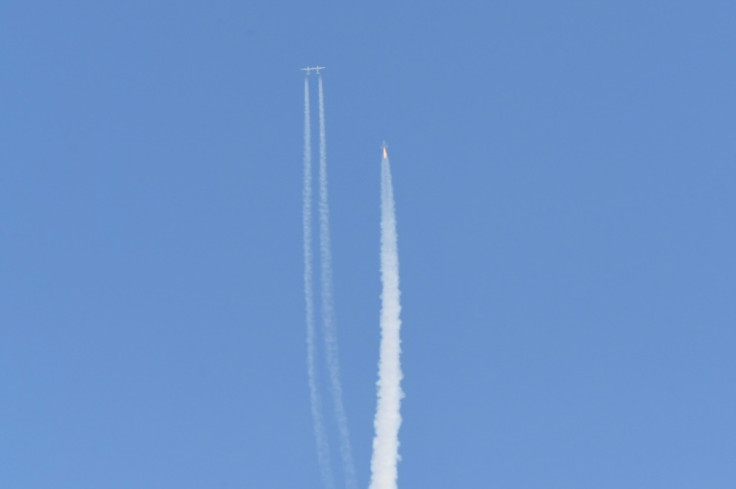Space Resources May Trigger Great Power Competition, 'Shape A New World Order': Expert

KEY POINTS
- The thirst for resources is expected to lead to deep space human exploration and space industrialization
- Ongoing lunar exploration efforts could be the beginning of using space resources for commercial use
- Harnessing solar power in space could also be a new source of sustainable energy
With the world already in a new era of lunar exploration, global space powers could soon be in another round of competition for extraterrestrial resources as a result of deep space exploration.
The Chandrayaan-3's mission to find water and other resources on the moon is being seen by experts as a precursor to the use of space resources for not just scientific, but also possible commercial use.
"Economically, space resources offer a billion-fold the resources on Earth, and thus the ability to shape a new world order," Namrata Goswami, author of "Scramble for the Skies: The Great Power Competition to Control the Resources of Outer Space, told International Business Times.
"Ideologically, space is a canvas and theater in which to execute grand strategy, and provide a wealth-generating platform that draws in partners and allies," she added.
Today, ideas like asteroid mining, Mars colonies and a permanent presence beyond the Earth's orbit are no longer limited to science fiction scripts. Their realization is on the horizon, as the thirst for resources is expected to lead to deep space human exploration and space industrialization.
"The potential held in precious minerals and resource deposits on celestial bodies has seen the emergence of dozens of companies seeking to address the space resources value chain. Mining just the top 10 most cost-effective asteroids (those closest to Earth and greatest in value) could generate around US$1.5 trillion," Theodora Ogden, Analyst at RAND Europe, told IBT.
"The stakes are high, both from a political and economic perspective. Given trillions of dollars worth of resources out there in our solar system, politically, the economic power of space resources will determine who is the leading state in the system," Goswami said.
Resources on the moon itself have "enormous implications for political power" if extracted, she added.
India's space agency "unambiguously" confirmed the presence of sulfur on the moon's south pole this week and also detected the presence of other elements, including aluminum, calcium, iron, chromium, titanium, manganese, silicon and oxygen.
Another area that is expected to make revolutionary changes through space programs is the renewable energy sector. Space agencies are currently exploring ways to collect solar power from outer space and beam it to Earth.
"Harnessing solar power in space could provide a new source of virtually limitless and sustainable energy," Ogden said. "Solar power satellites might include a deployable modular structure made of smaller satellites that connect together in space to form a photovoltaic array to harvest sunlight. Such projects could generate 2,000 gigawatts of power, dwarfing one of the largest solar plants in Aswan, Egypt, which generates around 1.8 gigawatts."
China is working on an ambitious space solar power plant to harvest solar energy from space. "If successful, this is a game changer and enables China's access to limitless renewable energy," Goswami said.
China has also accelerated investments in exploring space resources and "has one of the most advanced space capacities to include presence in LEO (Low-Earth orbit), on the Moon with its robotic missions, missions to Mars as well as an ability to change orbits," she added.
Along with China, nations like India, Russia and the U.S. are also strong contenders in the space race for extraterrestrial resources.
"The US and China have both mobilized plans to begin to exploit the Moon. India has chosen to join the U.S.-led Artemis Camp [and] Russia has joined the China-led International Lunar Research Station. All are developing methods to access the Moon and explore and study the asteroids," Goswami said.
India, whose Chandrayaan-3 lunar mission saw a successful soft-landing last week, is "well-placed as a growing economy with a booming start-up scene to leverage space, with expectations for the country's space economy to reach $40 Billion by 2040. However, this is still a relatively small portion of the global space economy, which is expected to be worth $2.7 trillion by 2040," Ogden said.
Another factor that puts India behind is that it has "no official policy for space resource extraction or developing a plan for Space Based Solar power," Goswami noted.
© Copyright IBTimes 2024. All rights reserved.






















